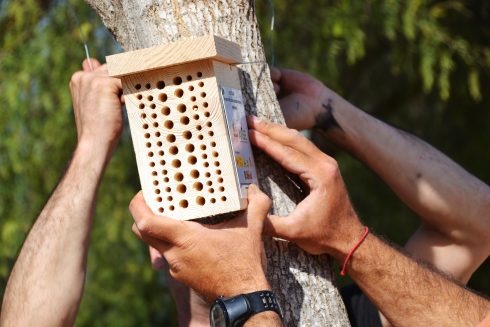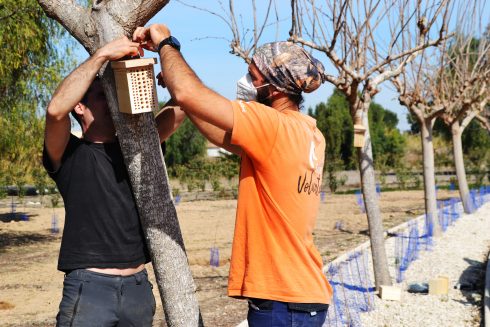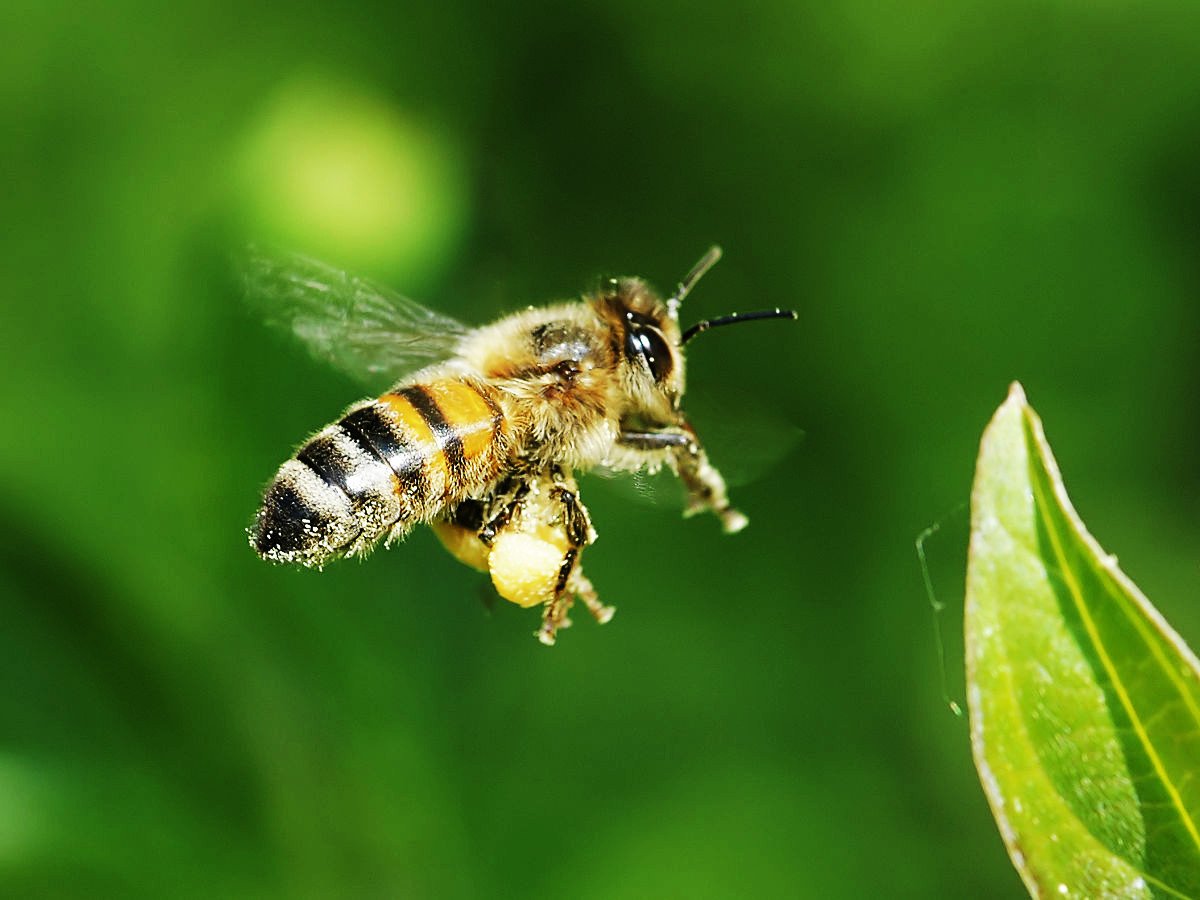ROJALES City Council, in the Vega Baja region of Alicante province, has just launched a second project to fight climate change along with the Association of Naturalists of the Sureste (ANSE).
This initiative involves the planting of 150 different types of plants in urban gardens to create green spaces and maintain bee populations in the area.
Put simply – increased pollination from more bees means a quicker spread of natural flora, converting more harmful carbon dioxide into oxygen.

Blocks of wood are also being placed in the existing woodland so nesting solitary bees can reproduce.
Further planting of trees will create a riparian forest within the same urban gardens on the north of the Segura river.
Flora planted includes rockrose, lavender, evergreens, edge chamomile, mastic and saugatillos.
Deputy mayor, Immaculate Chazarra, said: “These are species that guarantee a supply of pollen and nectar for these insects throughout the year.”

The initiative is part of the project named, “Agricultural Corridors for Adaptation to Change Climate of Pollinator Populations” that has support from the Biodiversity Foundation of the Ministry for the Ecological Transition and the Challenge Demographic as well as the Naturgreen and Ecomil companies.
Chazarra highlighted the environmental importance of such a project, commenting: “pollination is essential for the conservation of biodiversity, the functioning of ecosystems and agricultural production.”
ANSE claim bees are the most abundant group of pollinators (more than 80%) and admit that although most people associate the term ‘bee’ with the domestic bee (Apis mellifera), but there are up to 1,000 wild species of the insect that are, in many cases, solitary.
READ MORE: Over 200 trees to be planted in new forest to improve biodiversity on Spain’s Costa Blanca
Click here to read more Costa Blanca News from The Olive Press.







